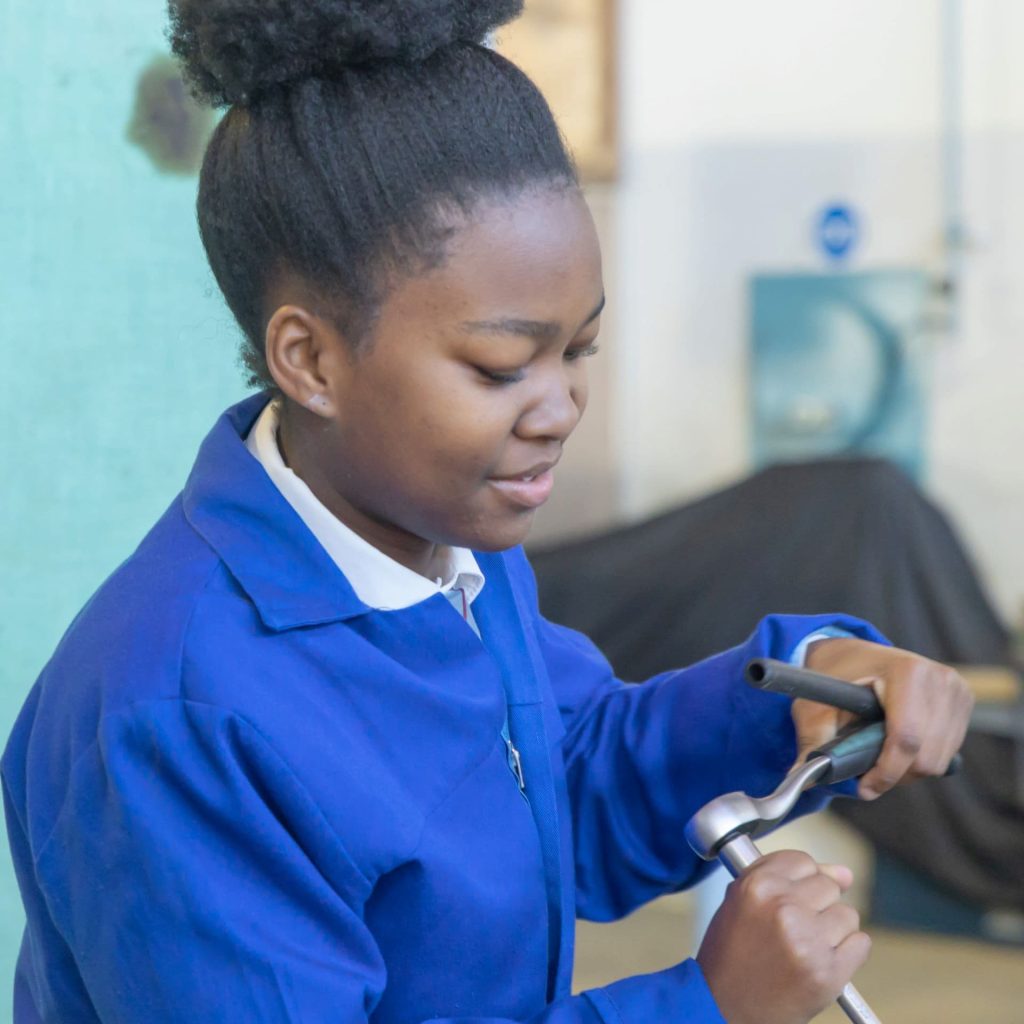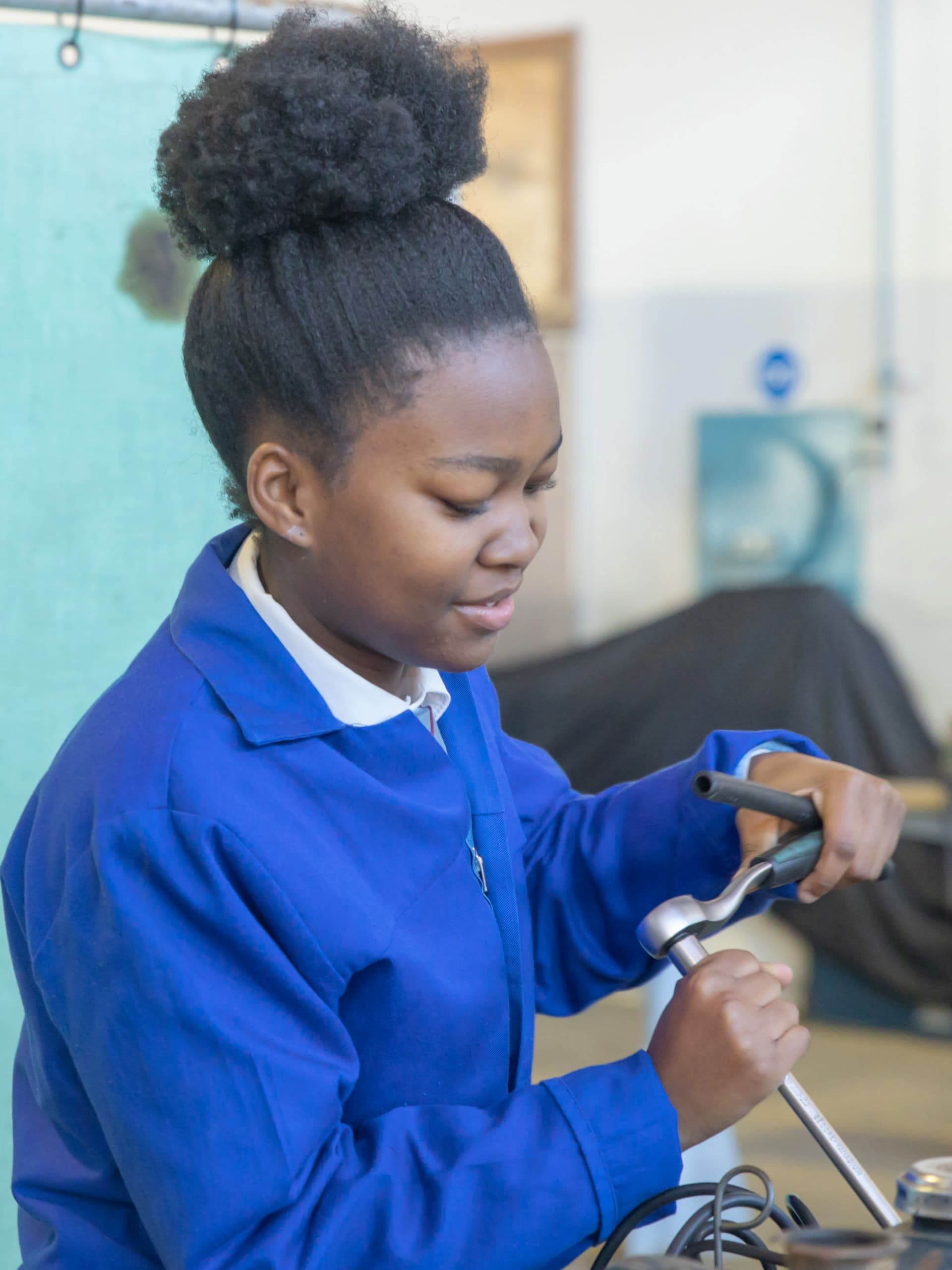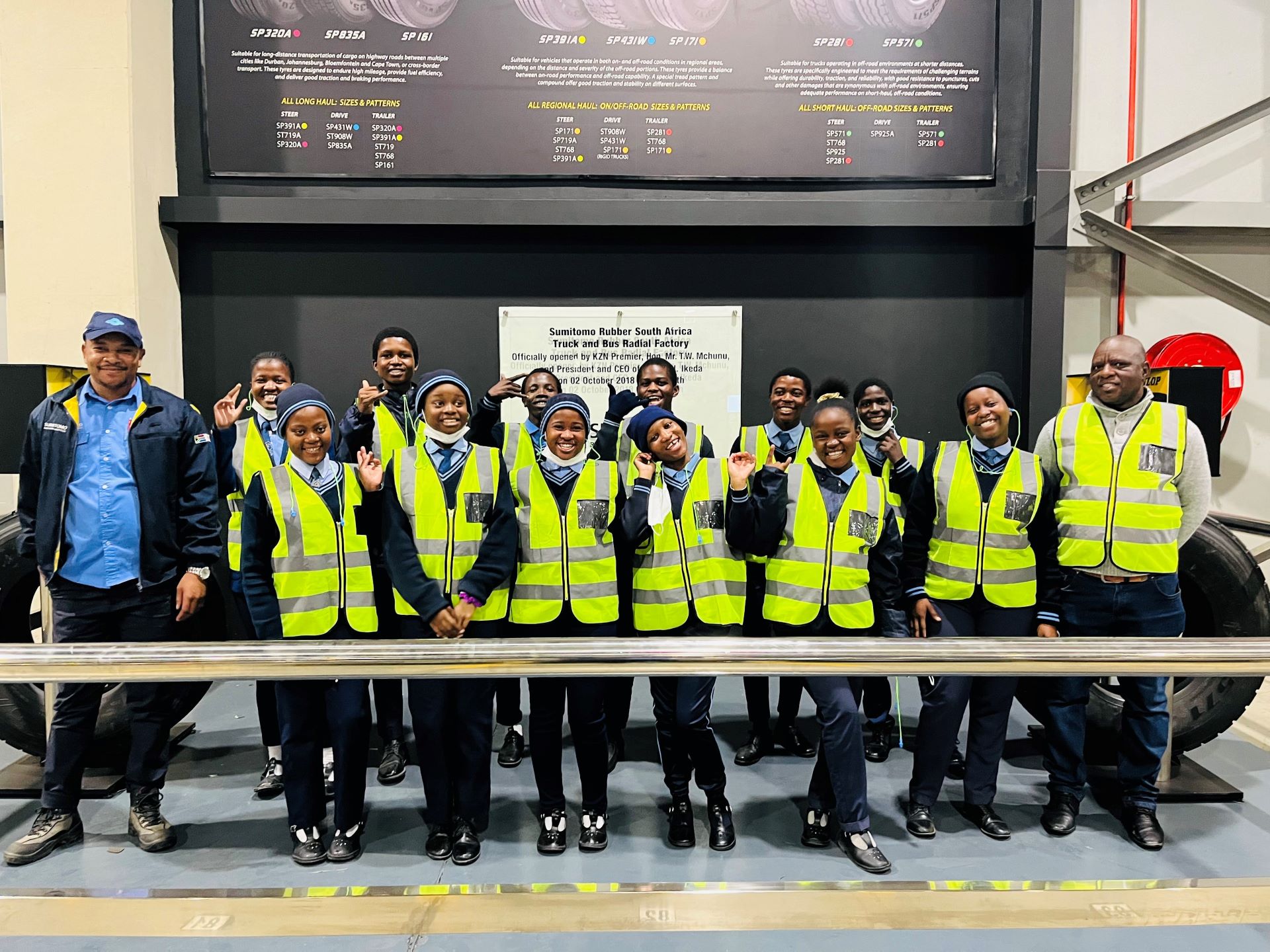Empowering young people with skills and knowledge is an essential activity in building and maintaining the economy of any society.
The spotlight is increasingly falling on vocational skills, and the Retail Motor Industry Organisation (RMI) says that during Youth Month there is no better way to applaud Government’s efforts to tackle youth unemployment in the long term than by prioritising education and the existing skills deficit.
Ipeleng Mabusela, RMI CEO: Strategy and Corporate support, says if the country wants to address the current skills crisis, we need to strengthen and build more TVET Colleges and shift focus towards more vocational and technical education. “Vocational skills form the backbone of any economy and can be a valuable stepping stone to advanced careers in the future,” he says.
In the automotive aftermarket sector specifically, growth is definitely predicted from the small to medium businesses that are going to drive the economy. “It is here that we are sitting with a skills crisis of technicians across the automotive sector. As an industry, we have to address the automotive skills shortages, reduce unemployment and be part of real transformation. The reality is that there has been a lack of real skills development and an under-investment in human capital for many years in our country. Skills have been outpaced by technology and there has been a loss of businesses and profits. Improved skills will result in increased productivity. It is all about professional standards and changing perceptions as well as encouraging business owners to attract new entrants into the sector,” says Mabusela.
Mabusela believes if we can drive the inclusion of more apprentices and start migrating the informal business into the formal sector, we will have a far stronger sector. “Significantly, for every small and informal business or every apprentice successfully converted and absorbed into the formal sector, five jobs are likely to be created. Each of these newly employed people will, in turn, financially support another 20 people on average in the process,” he says.
And this commitment is not filled with empty promises. Since 2017, RMI has been integrally involved with the Department of Higher Education and Training (DHET) to assume the role of Occupational Team Convener (OTC) for the Diesel and Automotive Motor mechanic trades using the occupational qualification delivery method at Technical Vocational Education and Training (TVET) colleges in South Africa.
They have also partnered with the German Chamber of Crafts Erfurt, more popularly known as Handwerkskammer Erfurt (HWK Erfurt), to upskill lecturers who drive vocational training in the automotive aftermarket.

Almaine Horne, Acting Registrar: School of Occupation and Training for Eastcape Midlands TVET College (EMC) is one of the colleges in the Eastern Cape that has benefited from the training. Horne believes a TVET qualification is so relevant in today’s world since it is a skills-centred training programme that equips unemployed youth with the necessary knowledge and skills to ensure that they are ready for the modern-day work environment. “And,” she says, “our collaboration and partnerships with industry ensure that our learners are fully empowered to meet the needs of industry.” Many of the ECM students come from poor, disadvantaged backgrounds in Kariega, Gqeberha and surrounding areas and this is one way that they can change their lives.
Mabusela says the transfer of knowledge and skills becomes easy if there is an adequate balance between the theoretical and the practical component of the training and that is why industry needs to work so closely with academia. “It makes it more effective for the students to grasp content because they are able to build on the knowledge and skills attained by continuously sharpening their skills and practising and polishing up their craft in a practical workspace.”
More recently, through one of the RMI’s constituent associations, the Motor Industry Workshop Association (MIWA), the organisation has also been targeting technical schools through their Motor Mech competitions, which are held at Port Rex in East London, Daniel Pienaar Technical High school in Gqeberha and HTS Drostdy in Worcester.
“We believe if we are to be successful in addressing the skills gap, we need to attract young people right from school level. Here the students can be introduced to more technical subjects like Mathematics/Technical Mathematics, Physical Science or Technical Science, Engineering Graphics and Design (the design elements of parts and body style) and Mechanical Technology (Automotive), as well as Fitting and Machining (the manufacturing of parts).
Johan Havenga from HTS Drostdy agrees, stressing the importance of schools working together with training centres, industry and Higher Qualification Institutions so that students can start working in the industry when they are still at school.
Competitions like Motor Mech expose the industry to these learners. Jason Bekker from Port Rex says it is very rare that schools and the private automotive industry get together and collaborate and give learners an exciting platform to kick-start their careers. “It’s really a special relationship as learners get a huge head start once they complete their schooling owing to the many eyes drawn to these shows, and for those who excel, apprenticeship opportunities literally fall into their laps.”
He is also completely in agreement that schools and colleges should align more closely with industry by updating their curricula to reflect current industry needs. The DHET’s Centre of Specialisation (CoS) at the Athlone campus of the College of Cape Town has seen keen interest from RMI members at vehicle dealerships and independent mechanical repair workshops.
The recipe is working for the College, industry and young apprentices, and ideally should be replicated across the country. “Employers are literally queuing up to have their apprentices trained by our College. They see the Return on Investment and are willing to host apprentices and assign workplace mentors. In the current intake, the College is the lead employer and the training provider. This means the apprentices are paid by the College and the employers are the hosts, providing the necessary ingredient of exposure and training at the workplace on the latest technology,” comments Rasheed Adhikari, lecturer at the College of Cape Town’s Athlone campus.
“If we can close the gap from high school to apprenticeship level, we should make significant progress and open up a wealth of new career opportunities for our young people in the future,” concludes Mabusela.



